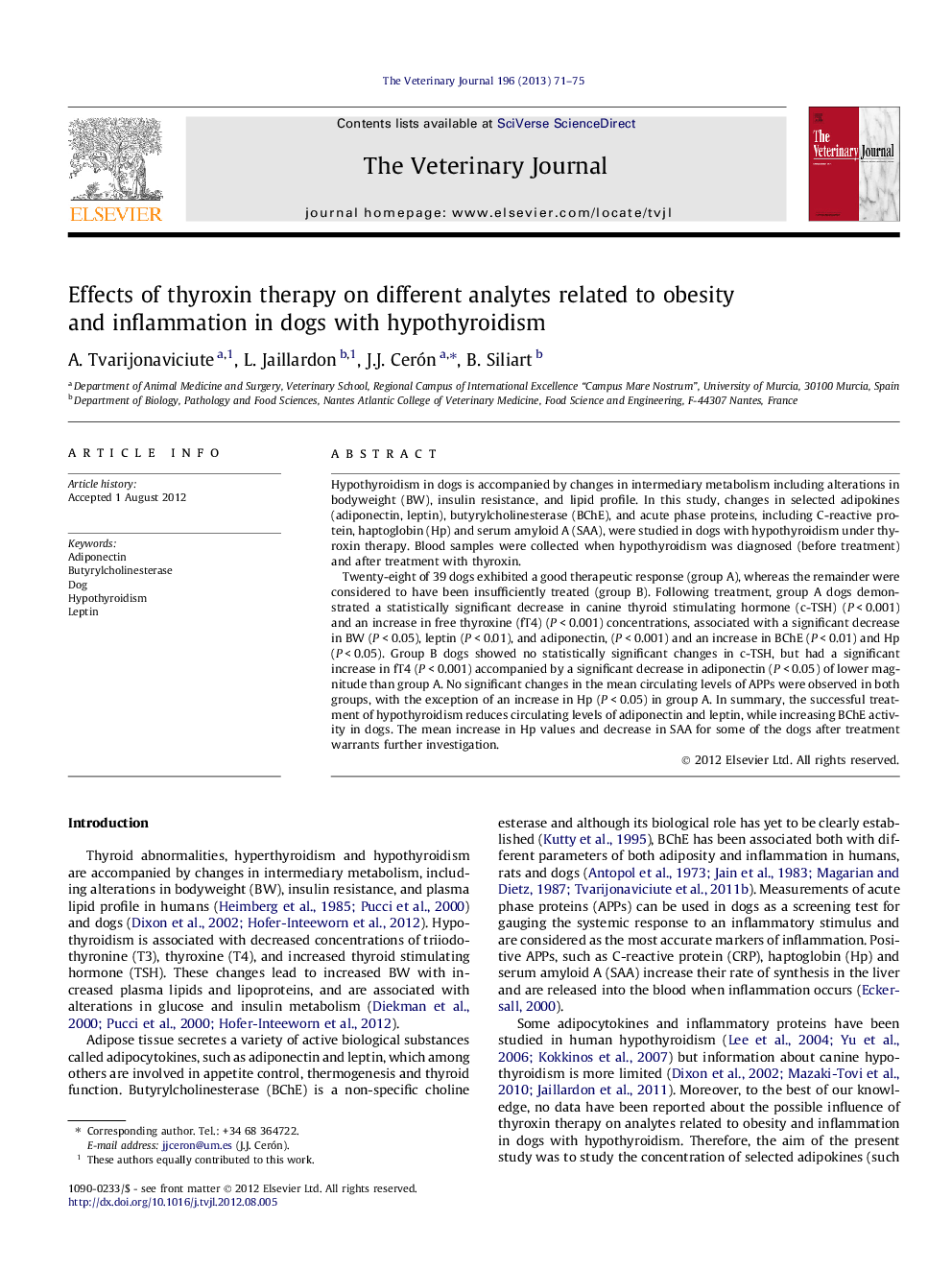| Article ID | Journal | Published Year | Pages | File Type |
|---|---|---|---|---|
| 5798130 | The Veterinary Journal | 2013 | 5 Pages |
Hypothyroidism in dogs is accompanied by changes in intermediary metabolism including alterations in bodyweight (BW), insulin resistance, and lipid profile. In this study, changes in selected adipokines (adiponectin, leptin), butyrylcholinesterase (BChE), and acute phase proteins, including C-reactive protein, haptoglobin (Hp) and serum amyloid A (SAA), were studied in dogs with hypothyroidism under thyroxin therapy. Blood samples were collected when hypothyroidism was diagnosed (before treatment) and after treatment with thyroxin.Twenty-eight of 39 dogs exhibited a good therapeutic response (group A), whereas the remainder were considered to have been insufficiently treated (group B). Following treatment, group A dogs demonstrated a statistically significant decrease in canine thyroid stimulating hormone (c-TSH) (PÂ <Â 0.001) and an increase in free thyroxine (fT4) (PÂ <Â 0.001) concentrations, associated with a significant decrease in BW (PÂ <Â 0.05), leptin (PÂ <Â 0.01), and adiponectin, (PÂ <Â 0.001) and an increase in BChE (PÂ <Â 0.01) and Hp (PÂ <Â 0.05). Group B dogs showed no statistically significant changes in c-TSH, but had a significant increase in fT4 (PÂ <Â 0.001) accompanied by a significant decrease in adiponectin (PÂ <Â 0.05) of lower magnitude than group A. No significant changes in the mean circulating levels of APPs were observed in both groups, with the exception of an increase in Hp (PÂ <Â 0.05) in group A. In summary, the successful treatment of hypothyroidism reduces circulating levels of adiponectin and leptin, while increasing BChE activity in dogs. The mean increase in Hp values and decrease in SAA for some of the dogs after treatment warrants further investigation.
